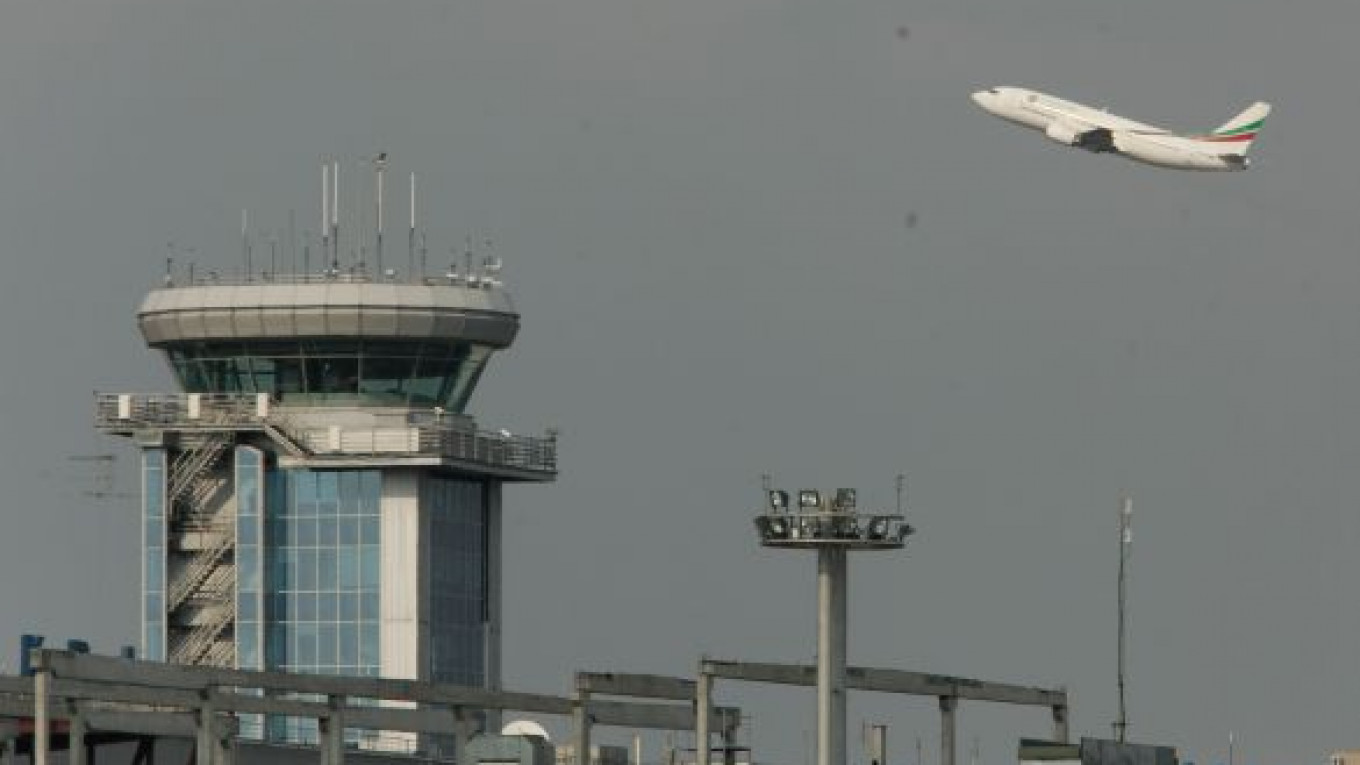The pilot who sent a Boeing 737 into a near-vertical dive in Kazan, killing all 50 people on board, might have had a fake license, investigators said Friday.
Investigative Committee spokesman Vladimir Markin said his team believed that some pilots working for small regional airlines in Russia have not been properly trained but managed to get fake licenses in centers certified by the country's aviation agency.
Markin said the pilot who sent the Boeing 737 into a dive after an aborted first landing attempt in the city of Kazan had received his license from a small training center that has since been shut down.
His investigators were conducting searches at the aviation agency and elsewhere for documents relating to such centers. He did not give a specific number of centers his team considered questionable but at least two were shut down — where the captain and co-pilot of the crashed plane had trained.
No criminal charges have been filed yet in the Nov. 17 crash of the Tatarstan Airlines jet in Kazan, 720 kilometers east of Moscow. Industry experts say, however, that early results of the crash probe pointed at a pilot error possibly resulting from the crew's insufficient skills in handling the plane.
Markin said the captain of the crashed jet, Rustem Salikhov, had previously served as a navigator and had allegedly been trained to fly Boeing planes.
But "investigators have certain doubts about whether the captain of the crashed Boeing had indeed received training there," Markin said.
The federal aviation regulator, Rosaviatsia, said it was investigating to check the legitimacy of all pilots' licenses issued at the training center mentioned by Markin and at other similar facilities.
Agency chief Alexander Neradko said the centers had been created to help fill the shortage of pilots but acknowledged that some of them were later shut down because of flaws.
Soviet-made airliners typically had crews of four, including a navigator and a flight engineer in addition to two pilots, unlike the more computerized Western planes that long have switched to crews consisting of two pilots.
Russia began to experience a severe shortage of flight personnel in recent years as veteran crew retired and the number of passengers swelled thanks to an oil-driven economic growth.
At the same time, an increasing number of carriers dropped Soviet-made Tupolev and Ilyushin planes, opting for more fuel-efficient yet complicated Boeings and Airbuses.
To help ease the crew shortage, aviation officials set up centers to train navigators and flight engineers to serve as pilots of Western-made planes. Critics said that carriers often sought to cut corners on training in the run for profits.
The Moscow-based Interstate Aviation Committee, which investigates plane crashes across the former Soviet Union, have concluded that the crew failed to land on their first attempt, brought the plane into a steep climb that caused it to stall, then fatally overcompensated.
The report was based on the data retrieved from the plane's flight data recorder, which also showed that its engines and other systems were working fine until the plane slammed into the ground.
Investigators have yet to release data from the cockpit conversation recorder.
A Message from The Moscow Times:
Dear readers,
We are facing unprecedented challenges. Russia's Prosecutor General's Office has designated The Moscow Times as an "undesirable" organization, criminalizing our work and putting our staff at risk of prosecution. This follows our earlier unjust labeling as a "foreign agent."
These actions are direct attempts to silence independent journalism in Russia. The authorities claim our work "discredits the decisions of the Russian leadership." We see things differently: we strive to provide accurate, unbiased reporting on Russia.
We, the journalists of The Moscow Times, refuse to be silenced. But to continue our work, we need your help.
Your support, no matter how small, makes a world of difference. If you can, please support us monthly starting from just $2. It's quick to set up, and every contribution makes a significant impact.
By supporting The Moscow Times, you're defending open, independent journalism in the face of repression. Thank you for standing with us.
Remind me later.






